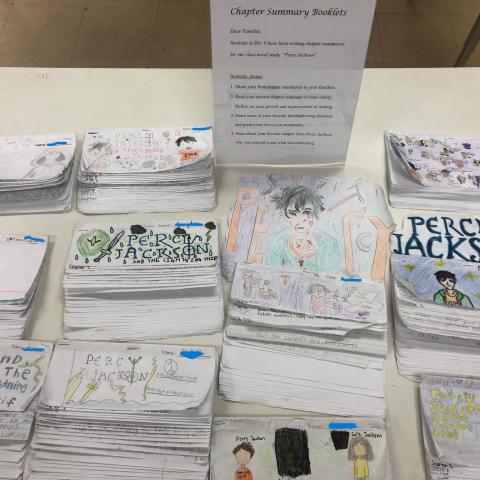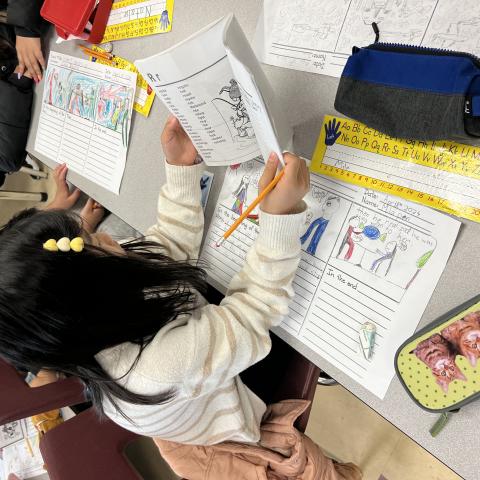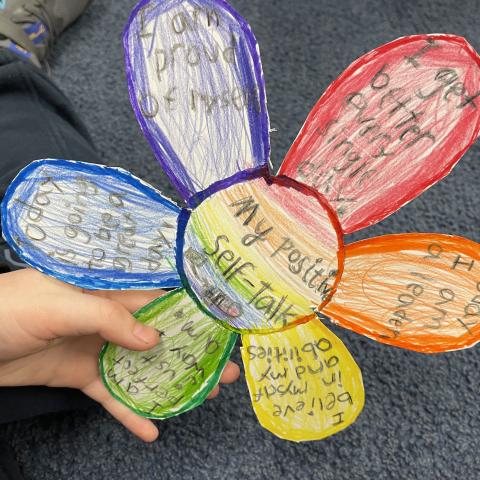Growing Competencies in Literacy
As reading literacy is an identified area of focus for our school community, our students have undertaken efforts to make deliberate connections to literature in their classes. Our teachers created environments conducive to meeting the needs of learners and one of those contexts is group work. Through daily practice of reading and conversational skills, our students can identify positive and negative character traits. This understanding is showcased through small collaborative learning groups and a recording of their comprehension levels on display around the classroom.
Another area of environmental adaptation to meet the needs of our learners, is the deep work they were able to engage in through book clubs and explicit teacher instruction. Through a carefully planned dive into a novel, the students made connections to the plot, identify foreshadowing and made predictions based on what they’ve read. To scaffold, every morning, the students engaged in roleplay activities, discussions and practiced reading strategies such as making inferences, connections and predictions. The summative assessment shows the students’ growth in writing, critical thinking skills and use of complex and descriptive analysis. The students were also able to show their understanding of assessment through the use of personalized rubrics, written and verbal feedback for each assignment. Students continuously reflect on their strengths and accomplishments to continue to grow in their literacy skills with specific next steps to improve on their next assignments.
In connection to our inquiry question of how growth mindset language supports students' development of literacy skills, teachers intentionally weaved positive self-talk phrases into learning activities in reading and writing. For example, students created growth mindset flowers to identify and represent the different positive phrases they can use. As a result, students are more persistent, resilient, and creative when faced with a challenging task.



